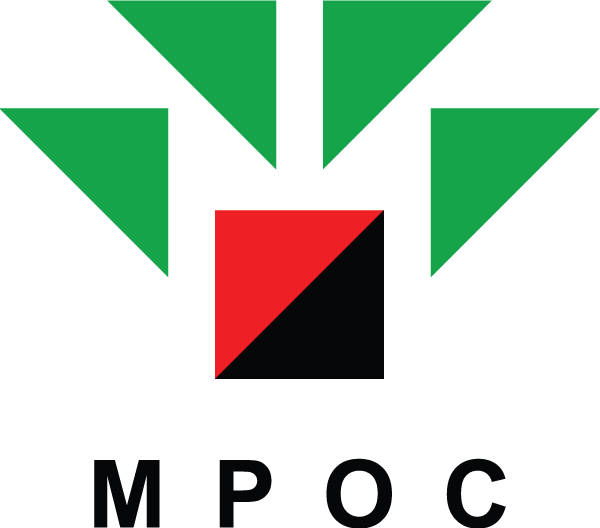Archive
2022
28 Mar - 01 Apr 2022
ASSESSING 2022: MANAGING OPPORTUNITIES AND RISKS
14 - 18 Nov 2022
MITIGATING THE NEXT WAVE OF MARKET UNCERTAINTIES
2021
05 - 11 Apr 2021
Section 1: Price Direction
•
05 - 11 Apr 2021
Section 2 : Special Focus on the US
18 - 24 Oct 2021
Section 1: Oils & Fats Supply, Demand and Outlook
18 - 24 Oct 2021
Section 2: Opportunities for Palm Oil in Asian Market
•
Opportunities for Certified Sustainable Malaysian Palm Oil in Asian Markets
2020
24 Feb - 01 Mar 2020
Section 1 : CPO Price Trend
24 Feb - 01 Mar 2020
Section 2: Global Palm Oil Market Opportunities
22 - 28 Jun 2020
POINTERS ON THE PRICE TRENDS
2019
18 - 24 Feb 2019
Section 1: CPO Price Trend
25 - 24 Feb 2019
Special Focus - India
19 - 25 Aug 2019
Section 1 : CPO Price Trend
19 - 25 Aug 2019
Section 2: Special Focus
2018
29 Jan - 04 Feb 2018
Section 1: CPO Price Trend
29 Jan - 04 Feb 2018
Section 2 : Global Palm Oil Market Focus
06 - 12 Aug 2018
Section 1: CPO Price Trend
06 - 12 Aug 2018
Section 2: Global Palm Oil Market Focus
2017
20 - 26 Feb 2017
Section 1: Price Directions
20 - 26 Feb 2017
Section 2: Market Challenges and Opportunities
21 - 27 Aug 2017
Section 1: Palm Oil Price Fundamentals
21 - 27 Aug 2017
Section 2: Regional Focus : CIS Countries
2016
22 - 29 Feb 2016
2016 Market Direction - Twists and Turns of Palm Oil Prices
22 - 28 Aug 2016
Section 1 : Palm Oil Price Fundamentals
22 - 28 Aug 2016
Section 2 : Trade Issues and Market Prospects
2015
23 Feb - 01 Mar 2015
Opportunities, Challenges And Trend In 2015 CPO Price
17 - 23 Aug 2015
Second Half 2015 - Anticipating Market Price Direction
17 - 23 Aug 2015
Special Focus: Indian Sub-Continent
2014
17 - 24 Feb 2014
Anticipating 2014 Palm Oil Price Direction
25 - 31 Aug 2014
2nd Half 2014: Market Challenges, Predictions And Directions
2013
18 - 27 Feb 2013
Mapping The Palm Oil Price - 2013 Market Perspective
22 - 29 Jul 2013
Prospects For Second Half Of 2013 - Managing Price Fluctuations
2012
13 - 20 Feb 2012
2012 Price Direction, Issues & Challenges
•
06 - 17 Aug 2012
Palm Oil : Challenges, Opportunities And Latest Market Directions
2011
07 - 17 Feb 2011
Challenges, Opportunities And Price Direction
08 - 16 Aug 2011
Challenges, Opportunities And Latest Price Trend
2010
02 - 08 Aug 2010
2010 Year End Prospects - What Lies Ahead?
Login
Error
Reset Password

Error
Register

Error

POINTERS
LOGIN /
REGISTER




ORGANIZED BY:

Section 2: Opportunities for Palm Oil in Asian Market:
Opportunities for Certified Sustainable Malaysian Palm Oil in Asian Markets

Mr. Mohammad Hafezh
Mr Mohammad Hafezh bin Abdul Rahman has been involved in the palm oil industry for the past 15 years especially in marketing, market development and market analysis. He was directly involved in various market activities in the Asia Pacific region and later, the Middle East where he engaged with various stakeholders from food manufacturers, traders, consumers and even government officials in trying to increase the import of Malaysian palm oil in these regions and also improve palm oil’s image as a healthy and sustainable source of oils and fats.
He has brought over his expertise in market strategy and industry engagements to the Malaysian Palm Oil Certification Council (MPOCC) to link and proves to all stakeholders that Malaysian palm oil is indeed sustainable where environmental conservation, social welfare on top of food safety are strictly adhered by the Malaysian palm oil industry players through the Malaysian Sustainable Palm Oil (MSPO) certification.
With an aspiration to get MSPO recognized in the global market, Mr Hafezh has believed in strengthening the MSPO standards through continuous improvements, constant communications to various stakeholders and direct engagement with local and foreign companies to convince them that MSPO is a good alternative in offering assurance that the palm oil produced in Malaysia satisfies to all sustainability requirements while ensuring everyone involved throughout the supply chain will not be left behind.
VIEW PROFILE
Countries with the largest and fastest growing producing and consuming of palm oil are situated in Asia. India, China, and Indonesia account for 40% of all pathways to promote sustainable trade between key trading nations. Of this, 85-90 % comes from Malaysia and Indonesia, where worldwide demand for palm oil has lifted incomes, especially in rural areas, but at the cost of tremendous environmental devastation such deforestation and often labour and human rights abuses as most globally debated sustainable management issues. However, at the same time, it views as a poverty-reduction scheme by the producing nations and as a growth engine for developing economies by the international finance organisations. The commodity then later witnessed an increase in the adoption of sustainability standards includes voluntary standards such as Roundtable on Sustainable Palm Oil (RSPO) and International Sustainability and Carbon Certification (ISCC) and national standards namely Malaysian Sustainable Palm Oil (MSPO) and Indonesian Sustainable Palm Oil (ISPO). Latest initiative done by India in development of Indian Palm Oil Sustainability (IPOS) supporting the conviction that national standards are key instruments for sustainable palm oil production.
For MSPO, efforts have been put in place to developed, educate, implement, and finally mandatory for all the plantations including smallholders to be certified with MSPO by stages. It later evolved with the launched of MSPO Trace in 2019 where it meets the demand of traceability and transparency in sustainability management. MSPO-Trace is accessible to the palm oil product end-consumer to trace the origin of the palm oil. Besides that, there are also collaboration with importing countries such as China Green Food, adoption in Olympics 2020 for sustainable sourcing policy, and ILO, US ILAB for addressing labour issue in the oil palm plantations. With the increase of commitments by the producing and importing countries and companies towards sustainable sourcing, MSPO will create a competitive edge of certified sustainable palm oil.
For MSPO, efforts have been put in place to developed, educate, implement, and finally mandatory for all the plantations including smallholders to be certified with MSPO by stages. It later evolved with the launched of MSPO Trace in 2019 where it meets the demand of traceability and transparency in sustainability management. MSPO-Trace is accessible to the palm oil product end-consumer to trace the origin of the palm oil. Besides that, there are also collaboration with importing countries such as China Green Food, adoption in Olympics 2020 for sustainable sourcing policy, and ILO, US ILAB for addressing labour issue in the oil palm plantations. With the increase of commitments by the producing and importing countries and companies towards sustainable sourcing, MSPO will create a competitive edge of certified sustainable palm oil.
REGISTER OR LOGIN TO VIEW FULL REPORT
REGISTER OR LOGIN TO VIEW PRESENTATION SLIDES
Questions & Answers
Please login to post comments.
Facebook SDK returned an error: